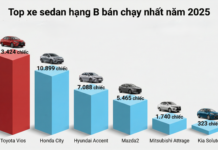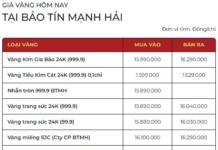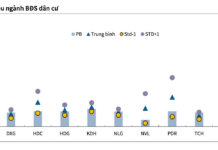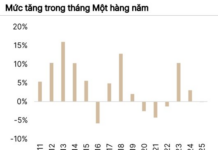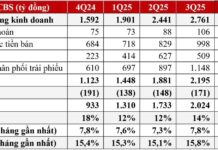 |
Understanding Digital Assets
In the era of digital transformation, digital assets are emerging as a key factor reshaping the global financial system. Digital assets encompass assets that exist in digital form and are verified through blockchain technology. This includes cryptocurrencies, security tokens, utility tokens, NFTs, and a plethora of other digital assets. These assets are not just means of transaction but also represent ownership and access to specific services and products within the digital ecosystem.
A common misconception is to equate digital assets with cryptocurrencies. Cryptocurrencies, such as bitcoin or ethereum, are just a subset of digital assets primarily used as a medium of exchange and store of value. In contrast, digital assets are more encompassing and can include financial assets like security tokens, as well as non-financial assets like NFTs, which represent ownership of digital art, virtual items, and more.
International and Vietnamese Legal Framework for Digital Assets
Worldwide, countries are taking different approaches to regulating digital assets:
United States: With its complex legal system, digital assets in the US are governed by multiple agencies such as the Securities and Exchange Commission (SEC) and the Commodity Futures Trading Commission (CFTC). These agencies oversee transactions, registration requirements, and compliance with securities regulations and anti-money laundering (AML) rules.
European Union (EU): The EU has enacted the Markets in Crypto-Assets (MiCA) regulation to establish a common legal framework for digital assets across its 27 member states, aiming to protect consumers, ensure security, and foster industry growth.
|
Decision 194/QD-TTg mandates the completion of the legal framework for digital assets by May 2025, a significant move to boost investor confidence and attract international businesses. |
Singapore: This country has clear and open regulations for digital assets through the Payment Services Act (PSA), attracting global financial technology (FinTech) companies to establish operations there.
Vietnam: In Vietnam, the legal framework for digital assets is still in the works. Currently, there are no comprehensive regulations specifically governing this field. However, regulatory bodies such as the State Bank, the Ministry of Finance, and the Ministry of Industry and Trade have issued multiple warnings and temporary regulations to control risks.
Decision 194/QD-TTg dated February 23, 2024, by the Prime Minister, and the draft Law on Digital Technology Industry are two significant milestones in shaping the legal framework for digital assets in Vietnam. Notably, this draft law provides clear definitions of digital assets and ownership rights, paving the way for their legal management and exploitation.
The Potential of Digital Assets
According to a report by Boston Consulting Group (BCG), the global digital asset market is projected to reach a value of $16.1 trillion by 2030, with an estimated compound annual growth rate (CAGR) of 30%. A survey indicates that Vietnam has approximately 10 million digital asset owners, ranking 7th globally in terms of user ratio, showcasing the immense demand and growth potential for these assets.
The legal and business environments in developed countries like the US, Japan, and Singapore have facilitated the legitimate operations of digital asset businesses. In Vietnam, despite the nascent legal framework, the emergence of the draft Law on Digital Technology Industry and the significant steps forward through Decision 194/QD-TTg are steering the country toward a more conducive legal environment for the development of digital assets.
The Role of Decision 194/QD-TTg…
Decision 194/QD-TTg marks a crucial step in establishing the legal foundation for digital assets in Vietnam. This decision outlines 17 key tasks to enhance the legal framework and improve the management of digital assets, including the issuance of regulations on anti-money laundering (AML/CFT) and the supervision of virtual asset service providers (VASP). Notably, the decision mandates the completion of the legal framework for digital assets by May 2025, significantly boosting investor confidence and attracting international attention.
Technology Platforms for Managing Digital Assets
The sustainable development of the digital asset market heavily relies on technology platforms for asset management. MetaDAP (Meta-Digital Asset Platform) is a prominent example in Vietnam. Built on blockchain technology, MetaDAP ensures transparent, secure, and internationally compliant management of digital assets.
The platform enables users to track, authenticate ownership, and manage various assets, including utility tokens, security tokens, and NFTs. Additionally, MetaDAP integrates international AML and counter-terrorist financing (CTF) regulations, fostering a safe and trustworthy digital asset ecosystem for both individual users and enterprises.
Digital assets are becoming an integral part of the digital economy, not just in Vietnam but globally. Vietnam is on the path to developing a clearer and more comprehensive legal framework, with initial strides made through Decision 194/QD-TTg and the draft Law on Digital Technology Industry. Backed by legal policies and the advancement of management platforms like MetaDAP, Vietnam’s digital asset market is poised for remarkable progress in the coming years.
However, sustainable development necessitates close collaboration between regulatory bodies, businesses, and the user community. Only then can digital assets truly propel the growth of the digital economy and contribute to the country’s overall prosperity.
Dr. Tran Quy – Director of the Vietnam Institute for Digital Economy Development
Captivating Strategies to Boost Non-Interest Income
Speaking to the Bank Times, economics expert PGS.TS Dinh Trong Thinh asserted that banks’ proactive efforts to boost non-interest income streams and reduce reliance on credit-based profits represent an inevitable trend. As net interest margins (NIMs) continue to narrow, diversifying revenue sources becomes crucial for sustaining profitability in the banking sector.
The Digital Technology Industry Act: Defining Digital Assets
With a growing number of individuals accumulating substantial wealth and assets through digital transactions, the challenge of taxing these transactions has become increasingly prominent. According to Mr. Dau Anh Tuan, Vice Secretary-General and Head of the VCCI’s Legal Department, the draft Law on Digital Technology Industry with its notable features in management and legal framework, particularly its first-ever definition of digital assets, is poised to address this issue.


